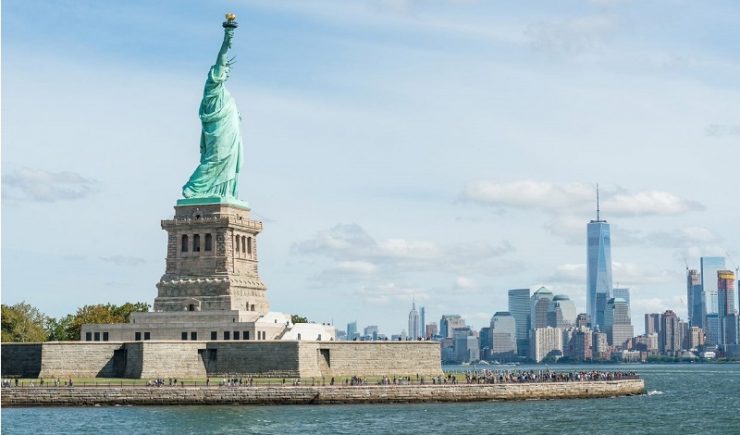PLAGUED by ongoing staffing shortages, visa delays and even political division, the US travel industry has lagged competitors in reclaiming its share of international visitors since the COVID-19 pandemic. By the end of 2023, the domestic sector reached just 84% of 2019 visitation levels, according to the US Travel Association.
Now, a first-of-its kind study from Euromonitor International, whose findings were first released to the public on Jan. 11, sheds additional light on how much the US is trailing its global competitors. Commissioned by US Travel, the independent market research firm’s study analyzed 18 countries’ travel industry performance—including France, the UK, Italy, Canada, Spain and South Africa.
It examined data across four categories: government leadership and its engagement with the travel industry (25% weighting); global perception (20%); identity and security, which includes visa wait times and expedited clearance programs for low-risk travelers (35%); and travel connectivity, which includes international arrivals and flight access (20%).
The result: Across all categories and among 18 countries, the US came in at No. 17. The top performers were the United Kingdom and France.
The 10 Most Underrated Vacation Destinations in the World
China’s travel industry ranked last, at No. 18. This comes as less of a surprise given China’s long-delayed tourism restart; air routes heading there still remain thin. Surpassing the US in overall tourism industry performance were countries such as 13th-ranked Saudi Arabia, whose tourism economy remains nascent, and Turkey, which came in third despite political tensions and natural disasters over the past year.
The study confirms that the American travel industry is less modern and efficient than its competitors—both established and up-and-coming—said US Travel, a nonprofit organization that advocates on behalf of the country’s travel sector.
“This should be a wake-up call. To see the US ranked 17 in a list of 18 top travel markets is eye-opening, stunning, disheartening,” said Geoff Freeman, chief executive officer of US Travel, during a press call detailing the results of the study. “It’s the type of thing that should force people on Capitol Hill to ask some very important questions.”
Freeman emphasized that the US share of the global tourism market has declined since 2019, while competitors are managing to increase theirs.
The grim findings from Euromonitor International, initially completed in fall 2023, were not published until now. They were revealed by US Travel as the motivation for creating a new Commission for Seamless and Secure Travel, which it also announced on Jan. 11. The commission, whose first official meeting will take place on Feb. 1, is chaired by Kevin McAleenan, former acting secretary of Homeland Security.
It counts 12 private sector and government experts (with more to come), including former leaders at the Department of Homeland Security, the Transportation Security Administration, and US Customs and Border Protection, along with former US ambassadors.
The group will be tasked with hearing out tourism stakeholders that represent the various segments of US Travel’s membership, such as major hotel executives, small business owners, and airline and airport operators. Then it will create solutions for policymakers to modernize US travel across the board and to tackle issues that plague the industry.
So far, Euromonitor’s study has helped identify several areas to prioritize, US Travel said, including customs, TSA passenger screening and visa processing. A set of recommendations will be submitted by the fall, Freeman tells Bloomberg in an interview.
At stake is the stability of America’s travel economy, which in 2022 amassed US$1.2 trillion in spending from both international and domestic visitors. According to a separate report from market research firm Tourism Economics published in December 2023, failing to improve TSA’s outdated screening process could cause US travelers to forgo as many as 3 million domestic trips annually, resulting in a loss of US$7.4 billion in spending this year. Another US$150 billion could be lost over the next 10 years due to ongoing excessive wait times for visas, it noted.
When asked on the call where Freeman expects to find the funding to overhaul US travel, he pointed to the revenue that visitors bring—including the taxes they pay on accommodations and shopping. It’s a formula other country have used to modernize their tourism industries.
“We are lacking the conviction to deal with these issues, to make travel a priority,” Freeman said, adding that he’s hopeful things will change. [Bloomberg/photo special]
















